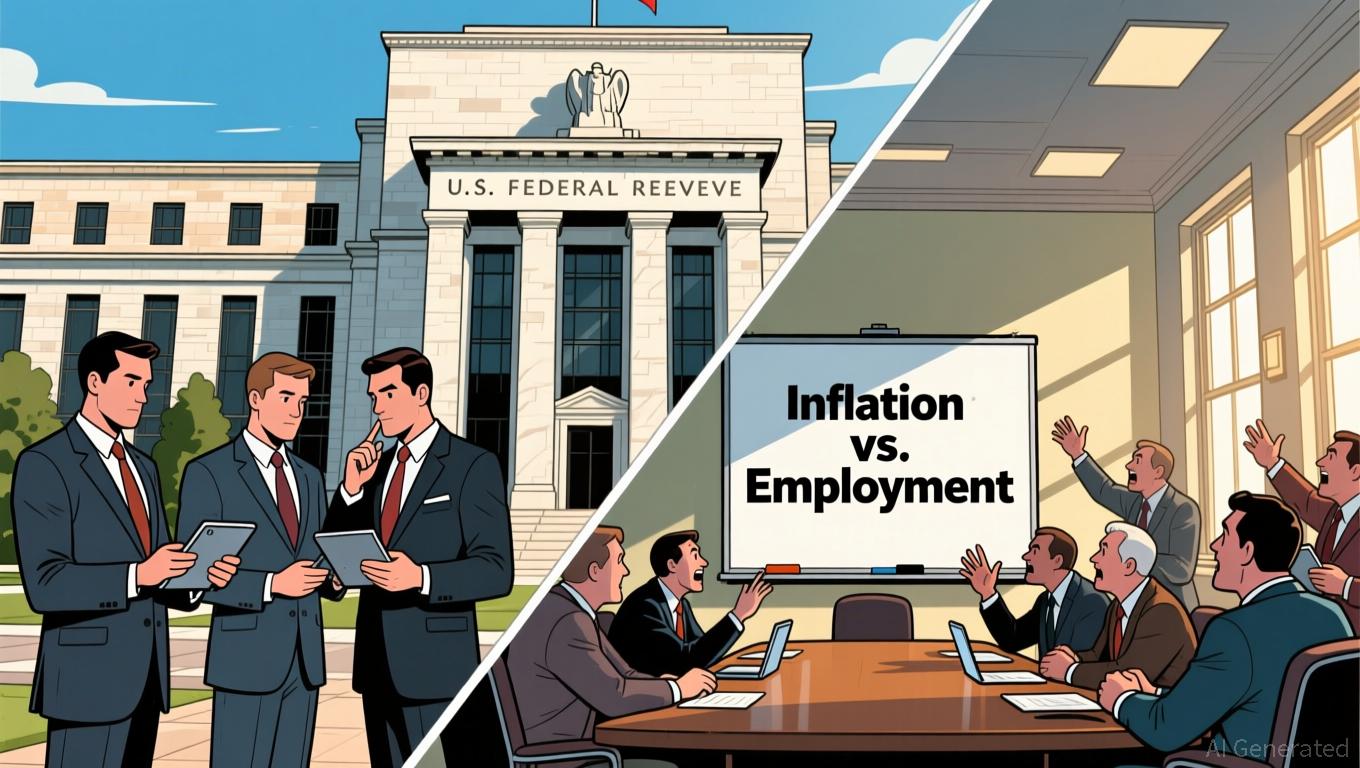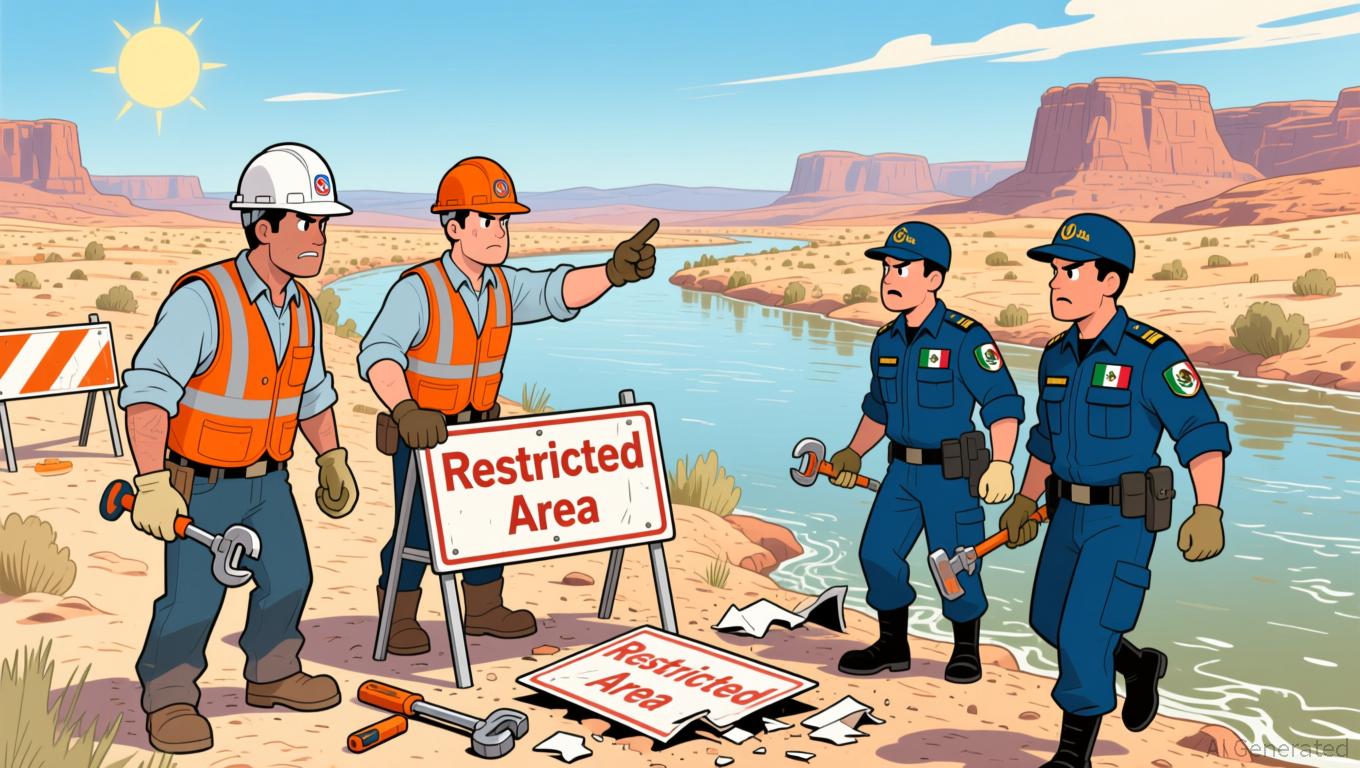Tech’s Progress Dilemma: Expansion and Risks Evolve Side by Side
- Cloudflare and Akamai show tech sector's growth in cloud/AI but face valuation concerns amid slowing markets. - Recent Cloudflare outage exposed centralized infrastructure risks, disproportionately affecting smaller platforms. - CEO Prince warns AI replacing junior staff could harm innovation, emphasizing human-AI collaboration's value. - Web3 projects grapple with balancing decentralized protocols against centralized CDN/DNS dependencies in user-facing layers. - Industry must reconcile rapid innovation
The technology industry continues to be a contradictory force, driving both advancement and exposing new weaknesses at the same time.
Cloudflare’s results for the third quarter highlight its ability to withstand a slowing technology market. The company’s revenue climbed 31% year-over-year to $562 million, and non-GAAP operating income reached $85.9 million, representing a 15.3% margin—
The convergence of artificial intelligence and workforce trends adds further complexity.

The latest Cloudflare service interruption brought to light weaknesses that go beyond technological optimism. A “latent bug” in the company’s bot mitigation system led to widespread outages, resulting in 500 errors on platforms such as X (Twitter), ChatGPT, and Coinbase—
The incident has revived discussions about redundancy in crypto infrastructure. While many projects focus on decentralized protocols, their user interfaces often rely on centralized CDNs and DNS services. This creates a “chokepoint” risk: even if a blockchain is distributed across thousands of nodes, a single CDN failure can cut off access to vital applications—
As the sector deals with these issues, moving forward will require balancing innovation with systemic risk. Cloudflare’s 30% revenue growth and Web3’s experiments in governance showcase the industry’s promise, but the recent outage and valuation debates are reminders that advancement is not guaranteed. In an era where technology increasingly defines global connections, the boundary between progress and risk becomes ever more delicate.
Disclaimer: The content of this article solely reflects the author's opinion and does not represent the platform in any capacity. This article is not intended to serve as a reference for making investment decisions.
You may also like
Fed Faces a Test of Trust: Managing Divided Rate Views and Ethical Controversies
- Fed's October rate cut revealed 10-2 policy split, balancing inflation risks against labor market weakness amid 2%+ inflation. - Ethics scandal emerged over Kugler's stock trades during blackout periods, triggering IG investigation and accountability concerns. - Political tensions intensified as Kugler's resignation accelerated Trump-aligned Miran's board seat, complicating policy governance. - December meeting faces uncertainty: some advocate 25-basis-point cut for labor support, while others warn again

Ethereum News Today: Ethereum Faces Liquidity Battle: Bulls Hold the Line at $3,100 While Bears Anticipate Further Drops
- Ethereum (ETH) struggles near $3,100 as traders monitor key liquidity zones amid 11% 7-day losses and cautious market sentiment. - ETF outflows ($74M for ETH, $373M for BTC) and institutional caution highlight waning investor confidence and liquidity challenges. - Technical analysts debate $2,904–$2,916 "buy zone" potential vs. bearish risks below $3,450, with consolidation phases expected before recovery. - Fed policy uncertainty (46% Dec rate cut chance) and EIL upgrades offer limited optimism as bears

Gundlach Cautions That Inflated Markets and Unstable Loans Could Trigger a Financial Crisis
- Jeffrey Gundlach warns U.S. equity market is "least healthy" and predicts private credit crisis due to "garbage loans" and weak underwriting. - He advises 20% cash allocation, reduced AI/data-center speculation, and compares private credit growth to 2006 subprime crisis, citing recent firm failures. - Recommends rebalancing portfolios: 40% global equities, 25% non-dollar bonds, and 15% gold as hedge amid dollar weakness and inflation. - Criticizes AI mania as "dot-com bubble" repeat, with NYU's Damodaran

Mexico Thwarts U.S. Cartel Raids, Cites 1848 Lesson on National Sovereignty
- Mexico's President Sheinbaum rejects Trump's cartel strike proposal, invoking 1848 sovereignty lesson to defend national autonomy. - Tensions escalate as Mexico removes U.S. contractors' "Restricted Area" signs near Rio Grande, citing border disputes and environmental concerns. - Trump's hardline drug rhetoric clashes with Mexico's sovereignty stance, highlighting strained U.S.-Mexico relations over border security and governance. - Sheinbaum balances U.S. cooperation with sovereignty defense, while Trum
